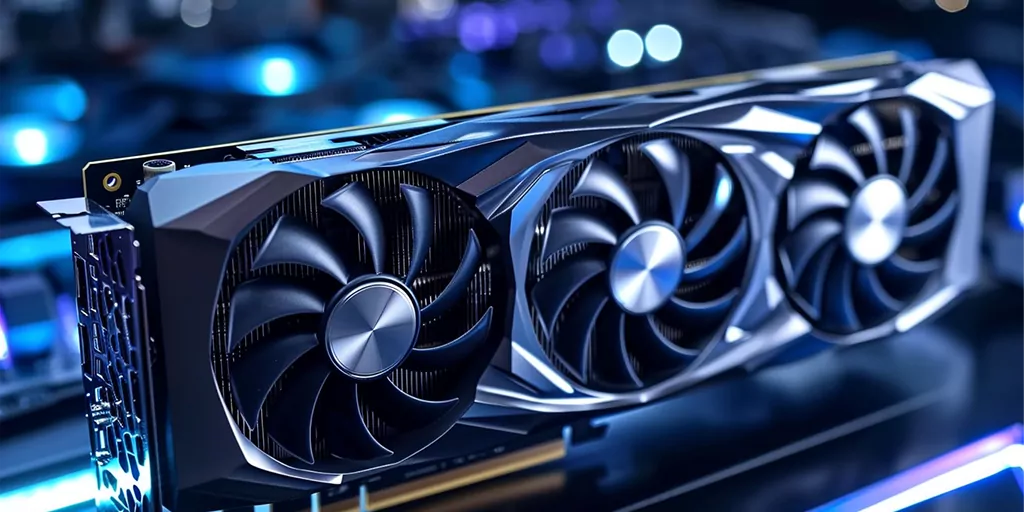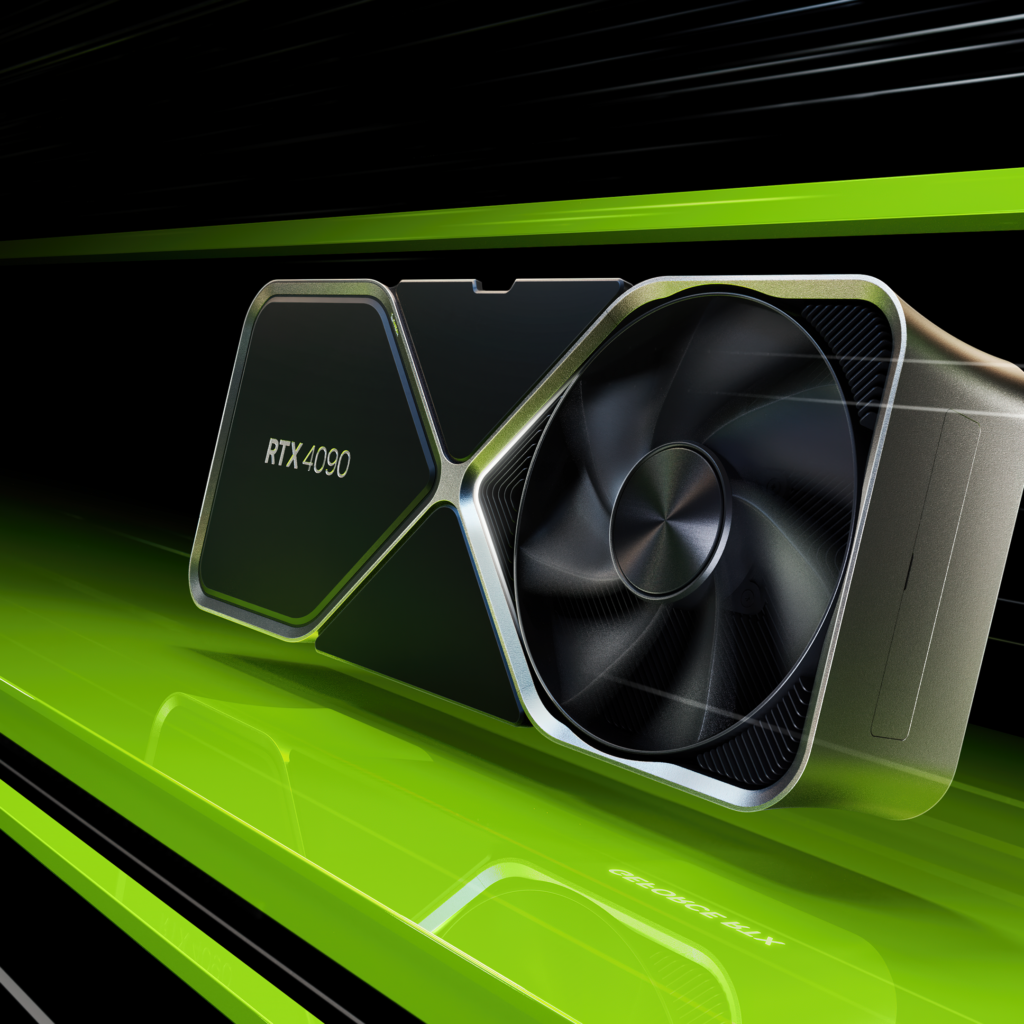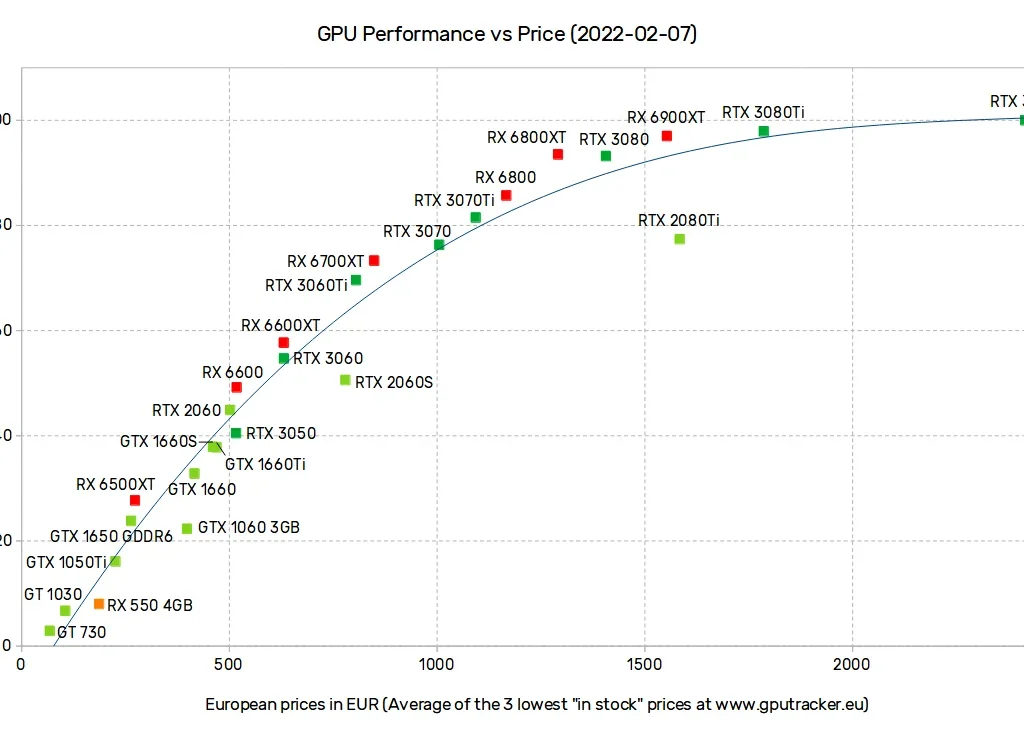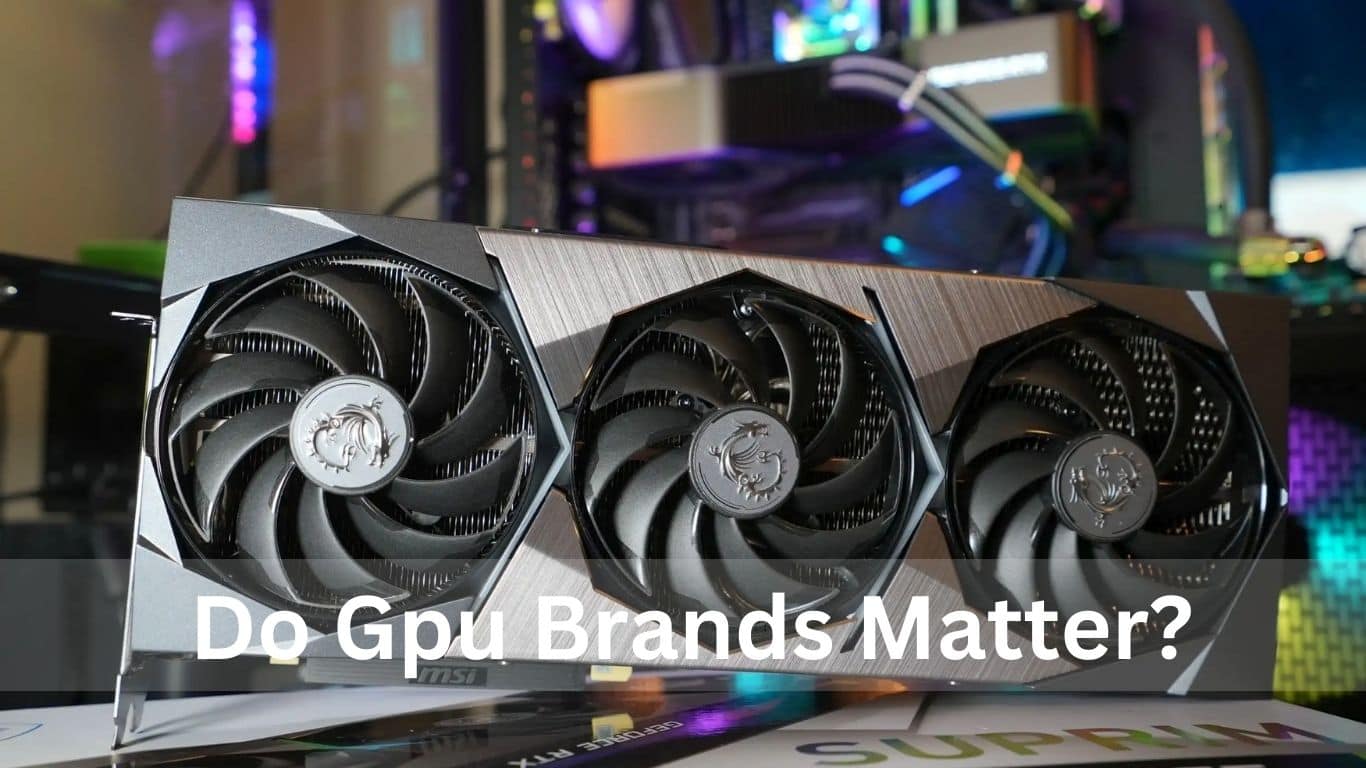Starting in gaming, I felt overwhelmed by the variety of GPUs available. I stood there, surrounded by different brands, not knowing which to choose.I found that the brand of a GPU can have a notable influence on both performance and the overall user experience. Let’s explore this together.
Do Gpu Brands Matter? (Short answer)
Yes, GPU brands do make a difference, as they affect performance, cooling, build quality, and warranty. Different brands offer unique features, such as advanced cooling systems or factory overclocking, which can enhance gaming or work performance.
In this article, we will discuss Whether Gpu Brands Matter.
What Is A GPU and Why Is It Important?

A Graphics Processing Unit (GPU) is a specialized chip created to handle advanced graphics calculations. It’s essential for rendering visuals and managing intense applications like high-resolution gaming, video editing, and AI simulations, improving efficiency for these tasks on your computer.
Role Of Gpu Brands In The Market
Regarding GPU brands, two names dominate the landscape: NVIDIA and AMD. These brands have held the top spots for years, each offering a unique set of products, technologies, and ecosystems.
Besides them, several lesser-known brands license NVIDIA and AMD GPUs, like ASUS, MSI, and Gigabyte, which often focus on adding custom cooling solutions and enhanced performance features.
Why Do Gpu Brands Exist?
In the tech world, brands matter because they stand for trustworthiness, creativity, and customer support. When it comes to GPUs, each brand offers unique features, designs, and software ecosystems tailored to meet diverse user requirements. Brands also offer product variety, helping consumers choose the GPU that best matches their specific needs.
Major Gpu Brands In The Market:
When it comes to GPU brands, three main competitors lead the market: NVIDIA, AMD, and the newer entrant, Intel. Each brand has established its own niche, with distinct approaches to GPU technology that appeal to various audiences.
Nvidia: The Pioneer In Graphics Performance

NVIDIA is a well-known leader in the GPU industry, recognized for its high-performance GPUs and innovations such as real-time ray tracing and AI-enhanced graphics. Radeon GPUs, on the other hand, present a solid choice for budget-conscious users, offering strong performance at lower prices. With features like FidelityFX Super Resolution (FSR), Radeon delivers smooth gameplay, even on less powerful setups.
AMD: The Budget-Friendly Powerhouse
AMD provides a strong alternative to NVIDIA, particularly for users seeking a more budget-friendly option. AMD’s Radeon GPUs provide strong graphics performance at a more affordable price compared to NVIDIA models. With features like FidelityFX Super Resolution (FSR), they enable smooth gameplay on budget-friendly systems, similar to NVIDIA’s DLSS.
Intel: New Competitor In The Gpu Market
Intel has recently entered the GPU market with its Intel Arc line, aiming to compete with established brands though Intel still has ground to cover to compete with NVIDIA and AMD, its expertise in processors may help it become a strong contender in the future.
Importance Of Gpu Architecture
A GPU’s architecture greatly affects its performance. NVIDIA’s Ampere architecture contrasts with AMD’s RDNA in areas like power efficiency and processing power. These architectural choices influence factors such as energy use and overall performance, making it valuable to understand a GPU’s architecture as well as its brand.
Performance Comparison: Nvidia Vs. AMD
Performance benchmarks showcase significant differences between NVIDIA and AMD. In high-end gaming, NVIDIA typically excels with higher frame rates and advanced features like ray tracing. Meanwhile, AMD offers strong competition, especially in mid-range models, providing GPUs that deliver great value while maintaining solid performance.
Software And Driver Support
Driver support is key to GPU performance and reliability. NVIDIA frequently updates its drivers, ensuring compatibility with the latest games and software. AMD prioritizes performance with driver updates designed to enhance its Radeon cards. Meanwhile, Intel is developing its driver support to ensure compatibility with popular games and applications.
Brand-Specific Features
Brands are important in GPUs partly due to their exclusive features. NVIDIA’s DLSS and AMD’s FSR each focus on improving gaming visuals, using AI or upscaling techniques to provide users with higher resolutions and smoother frame rates.
Compatibility With Other Hardware
When choosing a GPU, compatibility is crucial. Certain systems work more efficiently with specific GPUs, like those from NVIDIA or AMD, thanks to driver optimizations or hardware setups. This compatibility is especially crucial in custom-built PCs, where users need to ensure that the GPU integrates well with the CPU, motherboard, and other parts.
Durability And Build Quality
The build quality of GPUs can differ greatly among brands. Many enthusiasts believe NVIDIA’s GPUs tend to be more durable, although AMD and Intel also offer reliable products. The quality of a GPU is often influenced by the brand’s partners, such as ASUS, MSI, and EVGA, who may utilize varying materials and cooling solutions for their versions of the same GPU.
Price Vs. Performance

The build quality of GPUs varies significantly between brands. Many enthusiasts consider NVIDIA’s GPUs to be more durable, while AMD and Intel also provide dependable options. GPU quality is frequently affected by the brand’s partners, like ASUS, MSI, and EVGA, who may employ different materials and cooling solutions for their versions of the same GPU.
Does GPU Brand Matter/What Should I Buy?
Yes, the GPU brand matters. Various brands, including NVIDIA and AMD, deliver different levels of performance, features, and pricing. When making a purchasing decision, take into account your budget, the kinds of games or tasks you’ll be engaging in, and any particular features you’re interested in, such as ray tracing or AI support. Be sure to research and compare different models to identify the best option for your needs.
Does It Matter Which Graphics Card Manufacturer You Choose?
Yes, the graphics card manufacturer does matter. Brands such as NVIDIA, AMD, and Intel provide varying features, performance levels, and reliability. Your decision should be based on your budget, the tasks you intend to use it for, and any specific features you desire.
Why Are There Different Manufacturers, Anyway?
There are different graphics card manufacturers because NVIDIA and AMD sell their chips to various companies like Gigabyte and MSI. These companies design and market the graphics cards, incorporating features like cooling systems and ports, while maintaining similar base performance levels.
What’s The Difference Between Manufacturers’ Cards?
All graphics cards are equipped with GPUs from either NVIDIA or AMD, but brands vary in terms of cooling solutions, size, and design. Some cards may offer slight performance enhancements through factory overclocks. However, these differences are often minimal, and self-overclocking can lead to better performance outcomes.
Which Changes Really Matter?
When selecting a graphics card, there are several important factors to consider:
Card Length: The length of the card is crucial, especially for high-end models. If it’s too long for your computer case, it won’t fit regardless of its power. Always verify the dimensions of both the card and your case.
Cooling Design: The cooling system can influence performance. Cards with superior cooling, such as those with double or triple fans, are typically longer. If your case has limited airflow, a blower-style cooler may be more suitable. For quieter operation, consider cards with pre-installed water cooling.
Extra RAM: Some graphics cards come with additional GDDR RAM, which helps store more data, such as textures and game files. More video RAM can enhance performance and decrease load times. If a card features extra RAM, manufacturers usually emphasize this and may charge a bit more for it.
In summary, when choosing a graphics card, pay attention to the card’s length, cooling design, and RAM, as these elements can significantly affect both performance and compatibility.
FAQ,s
1. Does The Brand Of GPU matter?
Yes, the brand of a GPU matters. Each brand, like NVIDIA, AMD, or Intel, offers unique features, performance, and price options. Choosing the right brand depends on your budget, desired performance, and specific feature needs.
2. Does Graphics Card Brands Matter?
Yes, graphics card brands matter. Each brand, like NVIDIA or AMD, offers different features, performance, and prices. The best choice depends on your needs, such as gaming, design work, or budget. Research helps find the right card for you.
3. Does Brand Matter When Buying A Gpu?
Yes, brand matters when buying a GPU. Different brands offer varying cooling levels, build quality, performance tweaks, and warranties, which can affect gaming performance, longevity, and overall user experience.
4. Does It Matter The Brand Of The Gpu?
Yes, the GPU brand matters. Different brands like NVIDIA, AMD, and Intel offer unique features, quality, and prices. Choosing a brand depends on what you need, like performance, price, or special features for your computer tasks.
5. Does GPU brand Affect Fps?
Yes, the GPU brand can affect FPS (frames per second). NVIDIA and AMD offer different optimizations, software, and driver support, which can impact gaming performance. High-end GPUs from both brands often deliver smoother gameplay and higher FPS.
6. Which Brand Is Best For Graphics Cards?
The best graphics card brand depends on what you need. NVIDIA is popular for top performance and advanced features, while AMD offers good power at lower prices. Intel is newer but growing. Choose based on your budget and needs.
7. Does It Matter What Gpu I Use?
Yes, it matters which GPU you use. The GPU affects how well your computer runs games and graphics tasks. A better GPU can provide smoother gameplay and higher-quality visuals, while a weaker one may lead to lag and lower performance.
8. Does GPU brand Matter To You When Buying If They’re Doing The Same Thing Or Just Price?
If the GPUs perform similarly, price often becomes the deciding factor. However, brand differences like cooling, build quality, warranty, and additional features can sway the decision if these aspects enhance value for the user.
9. Are Different Brands Of The ‘Same’ Graphics Card Better Than Other Brands Of That Same Graphics Card? [Closed]
Yes, different brands of the same graphics card can offer varying quality. Some brands focus on better cooling systems, quieter fans, higher build quality, or factory overclocks, leading to improved performance, durability, and overall user experience.
10. Noob Question: Do Brand Names Matter For The Type Of Gpu You Are Buying?
Yes, brand names can matter for GPUs. Even with the same GPU model, brands vary in cooling quality, build materials, clock speeds, and warranties, which can impact performance, noise levels, and longevity.
Conclusion
So, does GPU brand matter? Absolutely, but it depends on what you’re looking for. Brand impacts everything from performance and pricing to features and support. Understanding these differences can help you make a better choice suited to your specific needs, budget, and personal preferences.



